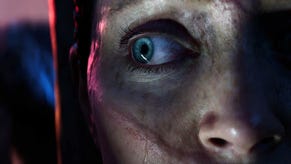Ocean views and indie gaming: introducing the developers on the tip of the African continent
Big surf.
"I like to tell people that I started making games because nobody could stop me," Travis Bulford quips as we chat over telephone. He speaks with practised ease, and with good reason - as arguably South Africa's longest-standing game developer he's well versed in discussing his career. Bulford founded Celestial Games in 1994 (he was a mere 19 at the time) and made his name two years later with the quirky platform game, Toxic Bunny. He's charted a course of fleeting highs and disappointing lows. The perfect man to speak to, then, about the dearth of big releases from Africa's richest country.
Bulford recalls the year Toxic Bunny was released and the success it enjoyed. It found a captive local audience and sold in Europe too. "It even did well in Israel, would you believe?" Seventeen years on and he's still talking about the game, albeit now in the form of Toxic Bunny HD, a spruced re-release of the classic, and one that hit the web late last year. But what I want to know is this: what happened in the intervening years?
Answer: the industry changed. Around 1997 an era of first-person shooters had dawned and Celestial's charming platform game seemed suddenly antiquated. "The bottom fell out. If you weren't Quake you weren't a game," Bulford says.
Nonetheless, Celestial entertained grand plans for its second title and devised an action-RPG technically far superior to Toxic Bunny. But when The Tainted was released at the turn of the millennium it failed to make an impression. Worse still, publishers Electronic Arts parted ways with the company. "It was all part of a global policy change," Bulford says. "It was the same time that EA closed Bullfrog in the UK. As I understand it, all game development was being moved to the US. Since South Africa was run from the UK, we in turn were affected."
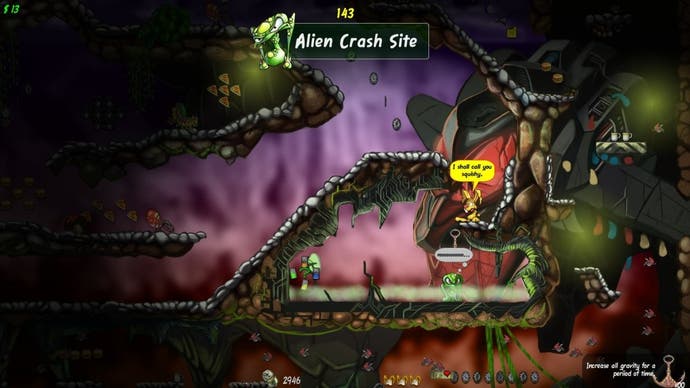
Following these setbacks Bulford briefly left the industry to work in IT but recently returned to his great passion. Nowadays the internet is Bulford's aide, though he admits that working without a publisher makes life tougher. Still, Celestial is hard at work on enhancements for Toxic Bunny HD and, like many other small studios, he hopes to see the game greenlit on Steam. Thanks to the internet, classic games like Toxic have a home once more.
Nor is Celestial Games alone. More and more independent South African developers have recently emerged and Bulford is pleased. Is the competition not troubling, I wonder aloud? He laughs at this. "It's not like we [Celestial] are a pie shop and a rival pie shop pops up next door and takes away our customers", he says, laughing. "With more developers emerging from South Africa there are more channels to explore. It's a fledgling industry here, but it's growing."
Digging deep
It seems utterly appropriate that if you come to Cape Town to make games, you do it at the beach. That's the legacy Steve McIvor has, perhaps inadvertently, created. A native of Ottawa, Canada, Steve has worked on Wizardy 8 and the Jagged Alliance series. Yet now he lives in South Africa's most southerly city with a studio of his own, Tasty Poison Games.
"I love Cape Town," he tells me when we meet. "And in a way, it reminds me of when I got my start in Ottawa." Beautiful, laidback and carefree as it may be, Cape Town is nonetheless not a mecca for game development. Beaches, yes. Videogames, no. Indeed, neither is the country at large. Government tenders aren't handed out to would-be-start-ups, so if you plan to make a living out of the craft you're forced to endure the grind. Thus, I can't help asking Steve why he's made his life here. The answer's simple: he met his partner here.
Steve is a quiet and unassuming man trained in the ways of animation. As a relative newcomer to these shores he's in a unique position to comment on what is holding South Africa back from producing big-budget videogames. But Steve is hesitant to answer directly. "South Africa definitely has a future in games. Perhaps I'd say some developers need to think outside the realm of indie games only. I know some guys who do stuff for Facebook... for casinos even, which is profitable. But it's the other extreme of indie games."
As for TastyPoison?
"We mostly make casual mobile games for clients, but we also work on our own projects. We divide our team up and we divide our resources between these different games." He proceeds to tell me about Rhino Raid which, believe it or not, was commissioned by WWF South Africa (the World Wildlife Federation, not Wrestling Federation, mind). The game is cleverly designed to empower the rhino by giving you control of the endangered animal. "They wanted a South African developer to make the game because... you know, rhino poaching is a South African issue."
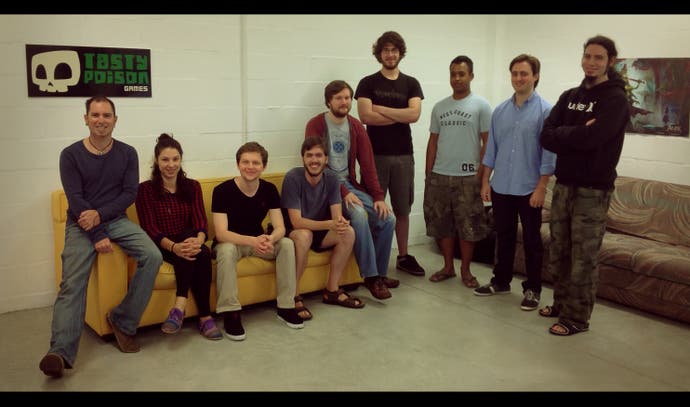
Projects like Rhino Raid ensure Tasty Poison's financial wellbeing, but a game with a more personal connection is Dig, a creation they've dreamed up on their own. I'm handed an iPod, the nearest available device with the game pre-loaded, and begin "digging". Think of it as a highly evolved PacMan in which you need to dig up ground before pursuing enemies catch you. It's good old-fashioned gaming and instantly addictive.
Dig is nearly done. In a few days' time, Apple will be sent a copy to approve. Where to from there? "Well I'm in talks with a lot of clients. Many of them international," Steve says. Why do they choose Tasty Poison? "Because we're affordable," he replies simply. "And because, even compared to a studio overseas, we can guarantee the same standard of game."
A win-win then? Steve considers this. "Well, on the other hand, there's often a ten hour time difference which can cause headaches. And I suppose some studios are uneasy about doing business with a company so far abroad."
It's then that I notice a transparent controller shaped like a boomerang sitting alongside a tiny transparent cube. "It's the Ouya," Steve says and we laugh at the difficulties in pronouncing the word. One of his team members, James, grips the boomerang in his hand and boots up Pocket RPG, a hack-n-slash game Tasty Poison released two years ago. "There's a bit of controller lag with the Ouya", James says mildly, but fifteen minutes later he's still playing. "We're busy porting Pocket RPG to the Ouya," Steve tells me.
It's only now, as Pocket RPG unfolds in front of us, that Steve lets slip he worked for Sir-Tech Canada on Jagged Alliance and Wizardry 8. He also once met Hideo Kojima, though he says this so quietly I barely catch it. As for James, the team-member manning the Ouya? "Oh, he worked on Max Payne 3 in England." I'm pointed to another team member across the room who is former alumni of Relentless Software in Brighton. Suddenly the polish of Tasty Poison's games isn't so much of a surprise.
But then Steve clearly has an eye for talent, and he isn't limited by his location either. Modern amenities have allowed Steve to choose his view, and he's chosen one of the most beautiful of all. He might be out of reach of industry hotshots but he nonetheless keeps a stable list of international clients who demand games with worldwide appeal. It suddenly dawns on me that, with the obvious exception of Rhino Raid, Steve makes games for the world.
Indeed, his favoured currency is not South African rands, rather US dollars. His hub is less a boardroom and more the Apple store. And his concern is not whether local South Africans are noticing his wares, but whether gamers, of any creed and nationality, are prepared to pay $3 for Dig. It's a tough gig, but Steve knows this.
He sinks into a plush purple chair shaped like a giant hand. He seems at ease with his milieu; at home. I ask him if he knows any other developers I could speak to, perhaps in the general vicinity? He reclines his head, points to the other end of the office and from the comfort of his startling yet functional piece of furniture says, "over there."
Pastures Green
Evan Greenwood is clad in a tan leather jacket. His hair is long, his beard unkept. He could be on stage strumming a guitar, except he's seated at his desk staring into an ocean of pixels, giant green Razer headphones marking him out against a white office wall.
Evan is the director of FreeLives and he and his team share the office with Tasty Poison. As he notices me arriving, he flicks off the headphones. We head to the kitchen downstairs, Evan clutching a coffee mug he means to refill, a coffee mug bearing a single phrase: "The Boss." This strikes me as comical because there's absolutely nothing in Evan's ruffled demeanour that makes me think he runs his company like a typical boss.
Evan parks his tan leather jacket on the back of a kitchen chair and tells me he got into the business around 2008, shortly after Super Meat Boy was released. "That game proved to me that indie games could be profitable."
So what is his Super Meat Boy?
"It's called Broforce!" Sorry, what? "Broforce, yeah." Evan tells me it's a high-octane retro platformer with chunky pixel graphics that after, eight months of work, is coming together nicely. Money permitting, Evan hopes to spend more time with the game fleshing out the story and expanding the "Expendables cast."

But then money is a constant worry. Evan doesn't have the benefit of a publisher hovering over him with bottomless pockets. The purse strings are tight and for every developer inspired to emulate the indie success of Super Meat Boy, there are thousands dissuaded by the prospect of meagre earnings. In turn, fewer studios mean fewer job opportunities. "A lot of the time you'll get a talented animator fresh from university and, with few game development job opportunities, he or she will settle on a job in the film industry. Or a really good programmer is recently out of school and he turns to working for enterprise software companies."
Nonetheless, Evan is optimistic about the talent that exists. He tells me about Danny Day, founder of QCF, who is based in Cape Town's Table View. Day had an unusual start to his career. He created a mobile-based learning game designed to teach rural schoolchildren maths. It was a success. Subsequently Day and his company have found success with Desktop Dungeons, an online RPG that's been well received.
Day, Evan tells me, is talented and passionate about the indie space and wouldn't have it any other way.
Back upstairs, Evan shows off Broforce!, which turns out to be as colourful as its title suggests. It's a time capsule; a zany, unabashed slice of '90s pastiche that reminds me of Worms; only replace the worms with muscled roid-junkies. Best of all, it's freely available online to play.
Before I leave, Evan mentions he's travelling to Germany in a week. When I press for more he tells me he's a part of the judging panel at A MAZE Festival. I smile, pleased for him, and wonder why he didn't think to tell me earlier.
But then it seems modesty is a defining characteristic of the developers based in the beach setting of Muizenberg, Cape Town.
Looking ahead
My last stop is the internet, as I fire off an email to Danny Day asking whether he sees AAA titles in South Africa's future.
He doesn't. But nor does that bother him. "The South African game development scene is more interesting than it's ever been before", he says. "We're in on the ground floor when it comes to building indie games." And with websites like www.MakeGamesSA.com, a portal Danny, Travis, Steve and Evan all vouch for, it is easier than ever before for South Africans to join the scene.
Day continues. "It doesn't matter where you are if you're selling via digital distribution, so why shouldn't people live where they want to live? I see South Africa producing tons of interesting, innovative games and really running with the uniqueness that our viewpoints allow us to explore."
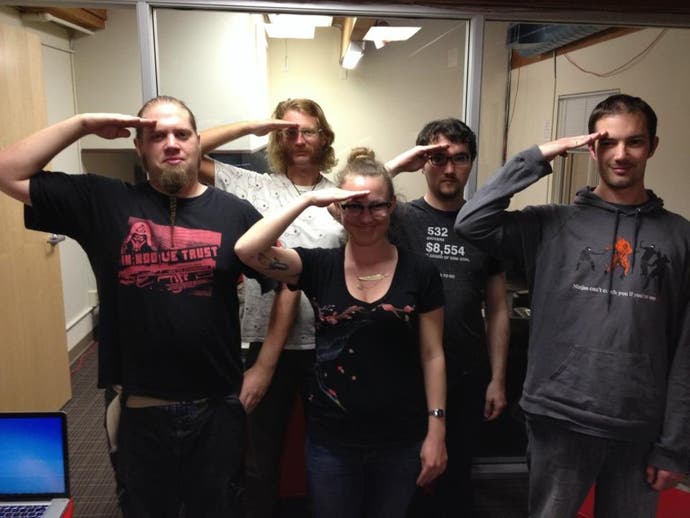
"We sell our games to the internet. To anyone who wants them."
Day's advice to South African developers is this: don't try to replicate what people are doing overseas with better budgets and more support. Be creative. Be independent.
All the developers I speak to exude a fervent, energetic love of the craft. "You have to remember," Travis Bulford tells me, "the very earliest games were fuelled by passion. As it's become a formal industry a lot of that passion has been washed away. The indie scene is where the passion is at."
Steve and his Tasty Poison team neatly illustrate this point, pouring their minimal resources into making the very best games they can, while across the office, Evan and FreeLives dedicate their time to an unabashed retro game out of sheer love for the medium. But perhaps it's Day who sums it up best. Having recently attended GDC and even toured the offices of Electronic Arts, he concludes with this: "The AAA industry seems a little more depressed, a little more business as usual and a quite a lot less hopeful than the raucous gaggles of indies doing the thing they love doing, come hell or high water."
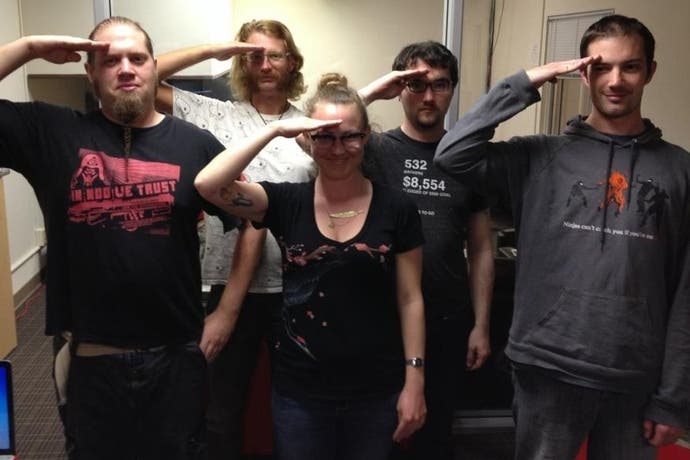







.png?width=291&height=164&fit=crop&quality=80&format=jpg&auto=webp)
